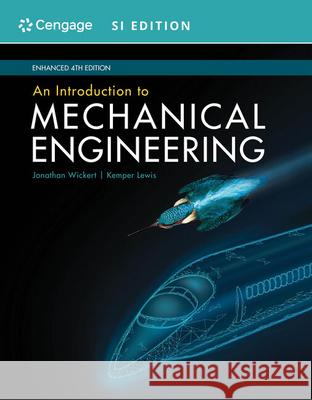An Introduction to Mechanical Engineering, Enhanced, Si Edition » książka
topmenu
An Introduction to Mechanical Engineering, Enhanced, Si Edition
ISBN-13: 9780357382301 / Angielski / Miękka / 2020 / 432 str.
Kategorie:
Kategorie BISAC:
Wydawca:
Cengage Learning
Język:
Angielski
ISBN-13:
9780357382301
Rok wydania:
2020
Ilość stron:
432
Waga:
0.70 kg
Wymiary:
23.01 x 18.59 x 1.8
Oprawa:
Miękka
Wolumenów:
01
Dodatkowe informacje:
Wydanie ilustrowane











